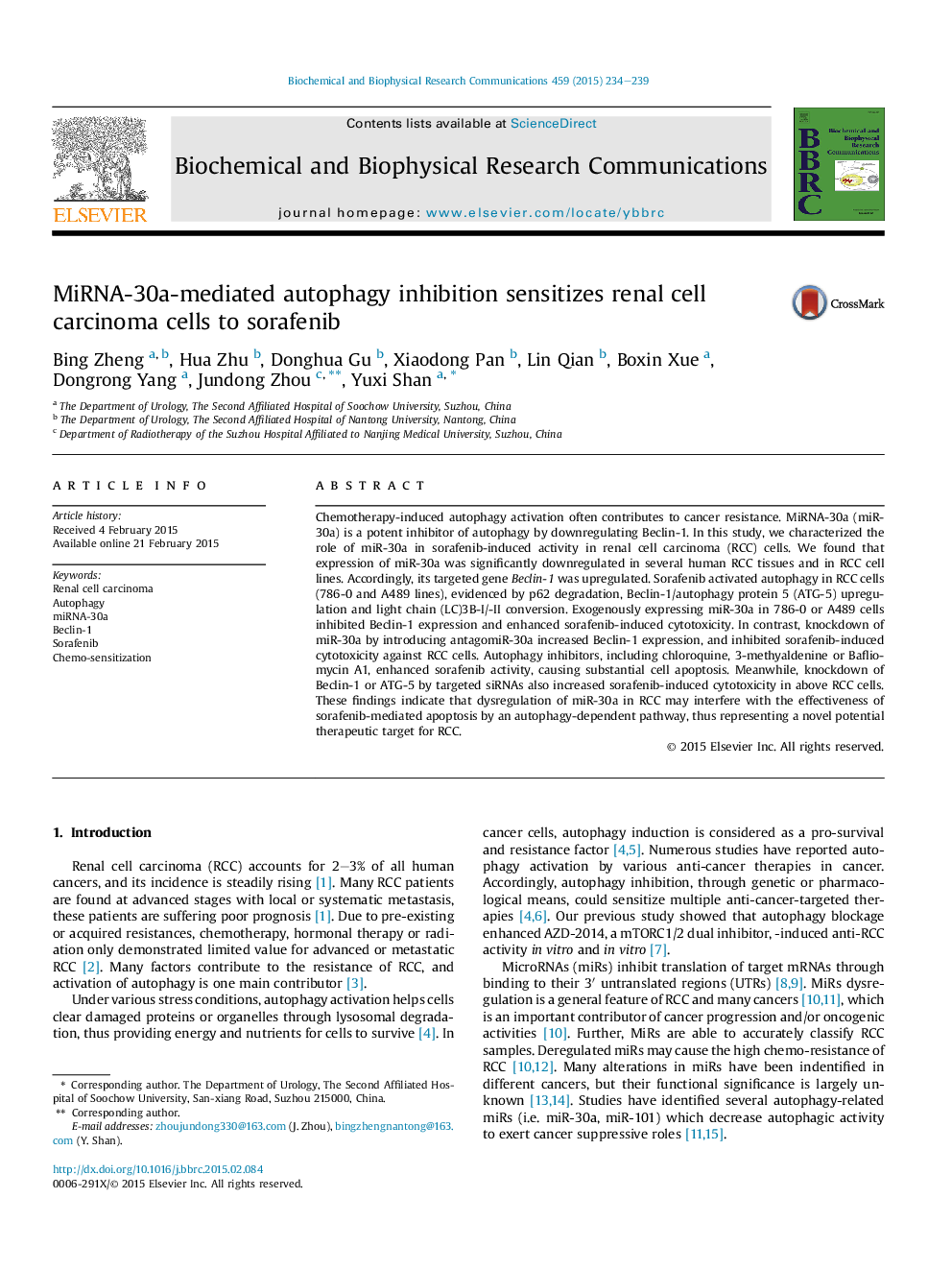| Article ID | Journal | Published Year | Pages | File Type |
|---|---|---|---|---|
| 10752630 | Biochemical and Biophysical Research Communications | 2015 | 6 Pages |
Abstract
Chemotherapy-induced autophagy activation often contributes to cancer resistance. MiRNA-30a (miR-30a) is a potent inhibitor of autophagy by downregulating Beclin-1. In this study, we characterized the role of miR-30a in sorafenib-induced activity in renal cell carcinoma (RCC) cells. We found that expression of miR-30a was significantly downregulated in several human RCC tissues and in RCC cell lines. Accordingly, its targeted gene Beclin-1 was upregulated. Sorafenib activated autophagy in RCC cells (786-0 and A489 lines), evidenced by p62 degradation, Beclin-1/autophagy protein 5 (ATG-5) upregulation and light chain (LC)3B-I/-II conversion. Exogenously expressing miR-30a in 786-0 or A489 cells inhibited Beclin-1 expression and enhanced sorafenib-induced cytotoxicity. In contrast, knockdown of miR-30a by introducing antagomiR-30a increased Beclin-1 expression, and inhibited sorafenib-induced cytotoxicity against RCC cells. Autophagy inhibitors, including chloroquine, 3-methyaldenine or Bafliomycin A1, enhanced sorafenib activity, causing substantial cell apoptosis. Meanwhile, knockdown of Beclin-1 or ATG-5 by targeted siRNAs also increased sorafenib-induced cytotoxicity in above RCC cells. These findings indicate that dysregulation of miR-30a in RCC may interfere with the effectiveness of sorafenib-mediated apoptosis by an autophagy-dependent pathway, thus representing a novel potential therapeutic target for RCC.
Related Topics
Life Sciences
Biochemistry, Genetics and Molecular Biology
Biochemistry
Authors
Bing Zheng, Hua Zhu, Donghua Gu, Xiaodong Pan, Lin Qian, Boxin Xue, Dongrong Yang, Jundong Zhou, Yuxi Shan,
